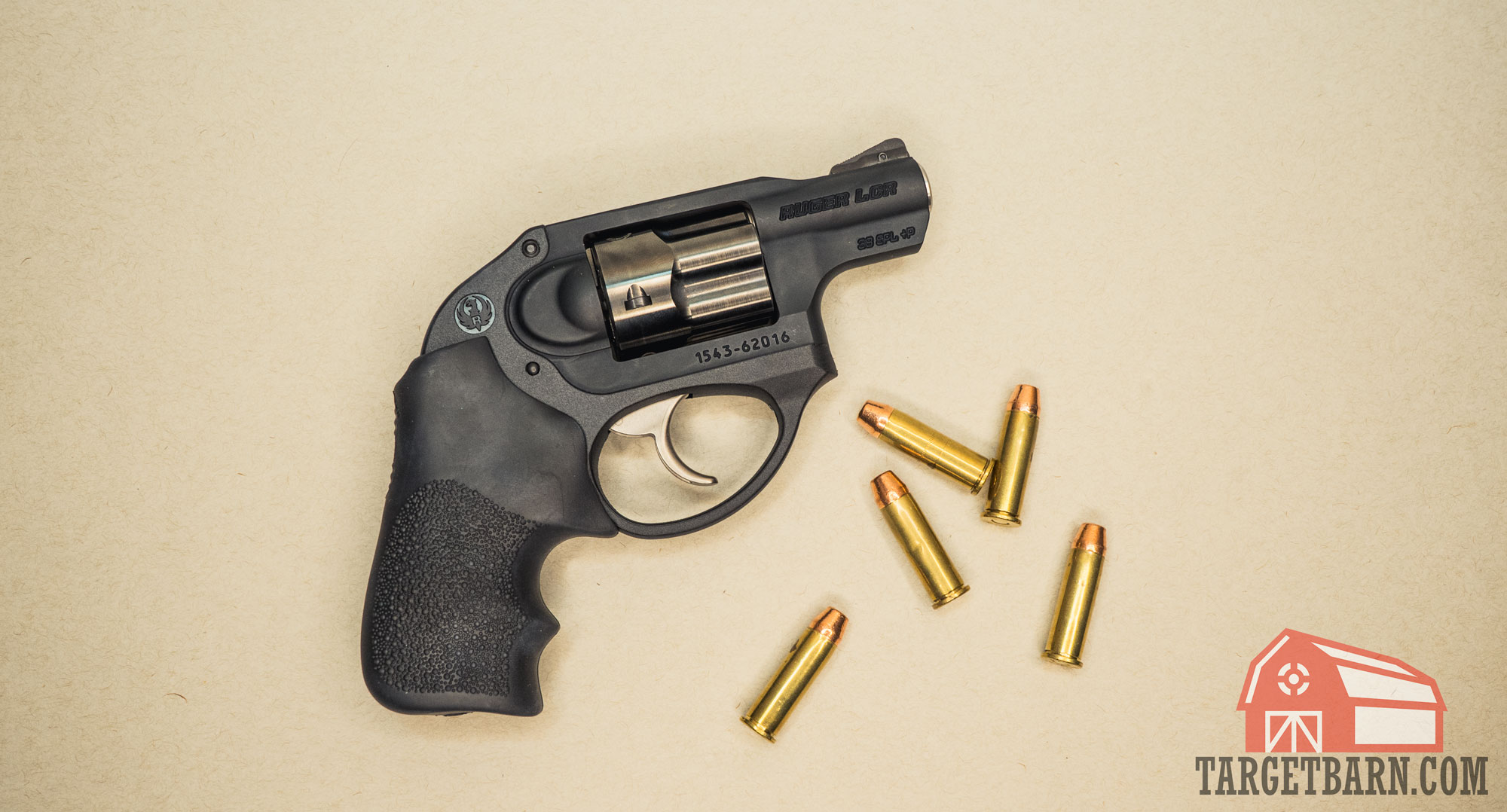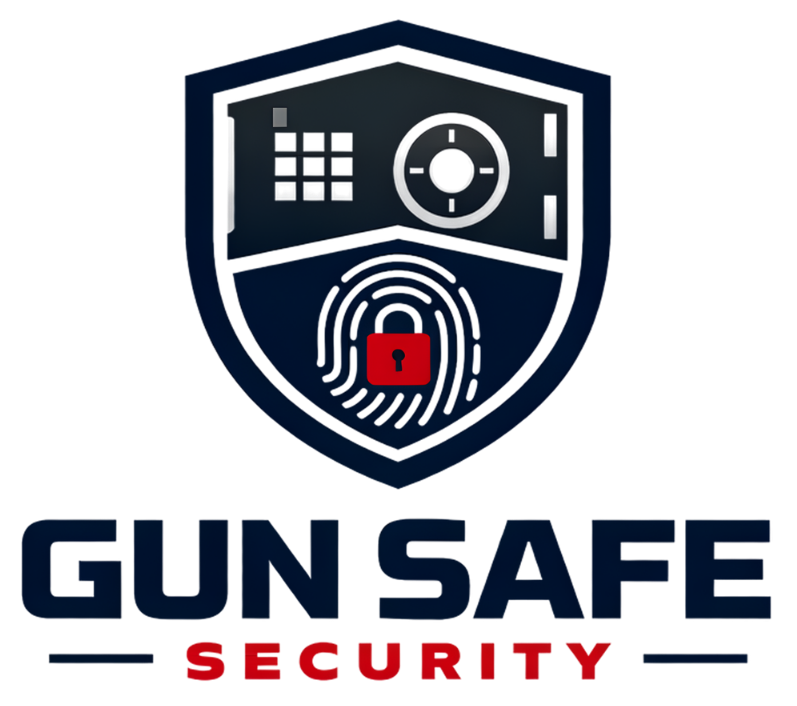Choosing the right caliber for your snub-nose revolver can feel overwhelming. You want a balance between stopping power, recoil, and how easily you can handle your firearm.
The wrong choice might leave you frustrated or unprepared in a critical moment. If you’re wondering which caliber suits your needs best, this article will clear up the confusion. By the end, you’ll know exactly what to look for to make your snub-nose revolver both reliable and comfortable to shoot.
Keep reading—you’ll want to make an informed decision that fits your lifestyle and keeps you confident every time you pick up your gun.

Popular Calibers For Snub-nose Revolvers
Snub-nose revolvers are small and easy to carry. Choosing the right caliber is important. The caliber affects power, recoil, and how many rounds you can carry. Some calibers work better for self-defense, while others offer less kick and easier handling. Here are some popular calibers for snub-nose revolvers.
.38 Special
The .38 Special is a classic choice. It offers good stopping power with manageable recoil. Many law enforcement officers used it for years. This caliber works well for beginners and those who want a reliable round. It is common and affordable, making it a favorite for snub-nose revolvers.
.357 Magnum
The .357 Magnum is more powerful than the .38 Special. It delivers higher velocity and better penetration. This caliber is a strong option for those who want extra power. Recoil is sharper, so practice is needed. Many revolvers chamber both .357 Magnum and .38 Special rounds.
.32 H&r Magnum
The .32 H&R Magnum offers light recoil and decent power. It is easy to shoot and control. This caliber is less common but still a good choice. It suits those who prefer a softer shooting experience. The round fits well in smaller snub-nose revolvers.
.44 Special
The .44 Special is larger and heavier than others. It provides strong stopping power with moderate recoil. This caliber is less popular in snub-nose models but offers serious performance. It is a good option for those who want more impact and are comfortable with heavier guns.

Factors Influencing Caliber Choice
Choosing the right caliber for a snub-nose revolver depends on several key factors. These factors affect how the gun feels, performs, and fits your needs. Understanding them helps make a better choice.
Recoil Management
Recoil is the kick felt when firing a gun. Smaller calibers create less recoil. This makes shooting easier, especially for beginners. Strong recoil can affect accuracy and comfort. Managing recoil well helps you shoot better and faster.
Stopping Power
Stopping power means how well a bullet can stop a threat. Larger calibers usually have more stopping power. This is important for self-defense. Smaller calibers may need more shots to stop a target. Think about what level of stopping power you need.
Ammunition Availability
Some calibers are easier to find than others. Common calibers have more choices in brands and prices. Rare calibers can be harder to buy and more costly. Choosing a caliber with easy ammo access makes practice and use simple.
Size And Weight Considerations
Snub-nose revolvers are small and meant to be carried. Larger calibers often need bigger, heavier guns. This can reduce comfort and ease of carry. Smaller calibers allow for lighter, more compact revolvers. Balance size and weight with your needs for carry and handling.
Performance In Self-defense Scenarios
Performance in self-defense scenarios is critical when choosing the right caliber for a snub-nose revolver. The main goal is to stop a threat quickly and effectively. This depends on several factors like bullet behavior, shot accuracy, and the revolver’s capacity. Each element plays a vital role in real-life defense situations.
Penetration And Expansion
Bullets must penetrate enough to reach vital organs. Too little penetration can mean the threat stays active. Bullets that expand on impact cause more damage. This increases the chance of stopping an attacker fast. Choosing a caliber that balances penetration and expansion is key.
Shot Placement Importance
Where you hit matters more than the size of the bullet. A well-placed shot can stop a threat with any caliber. Training to aim for vital areas improves your chances. Practice helps make shot placement instinctive under pressure.
Capacity Vs. Caliber Trade-offs
Larger calibers often mean fewer rounds in the cylinder. Smaller calibers allow more bullets but may reduce stopping power. Finding a balance between capacity and caliber affects your defense strategy. Consider how many shots you might need in a real encounter.

Expert Recommendations
Choosing the right caliber for a snub-nose revolver matters a lot. Experts share advice based on real use and tests. Their tips help both new and experienced shooters pick the best option. Understanding these insights can improve safety and effectiveness.
Law Enforcement Preferences
Many officers favor .38 Special for snub-nose revolvers. It offers a good balance of power and control. This caliber is easier to shoot quickly and accurately. It also produces less recoil, helping with fast follow-up shots. Officers often carry plus P loads for extra stopping power.
Civilian Carry Insights
Civilians often choose .357 Magnum or .38 Special. The .357 Magnum is powerful but has stronger recoil. The .38 Special is gentler on the hand and good for self-defense. Many prefer .38 Special for everyday carry due to its manageability. Ammunition availability and cost also influence choices.
Training And Handling Tips
Practice is key for shooting any snub-nose revolver. Start with lighter calibers to build confidence and skill. Learn to manage recoil and aim quickly under stress. Regular dry-fire exercises improve trigger control. Experts recommend training with your chosen caliber for best results.
Common Misconceptions About Snub-nose Calibers
Snub-nose revolvers have a unique place in the world of firearms. Many people have strong opinions about which caliber works best for these compact guns. Some of these opinions come from myths and misunderstandings rather than facts. Clearing up these common misconceptions helps buyers make better choices. Here are a few of the most frequent myths about snub-nose calibers.
Myth Of Larger Caliber Superiority
Many believe that bigger caliber means better performance. This is not always true for snub-nose revolvers. Larger calibers can be harder to control in a small frame gun. The extra size and weight may reduce accuracy. Small calibers often allow faster, more controlled shots. Size alone does not guarantee better results.
Overestimating Stopping Power
Stopping power is often exaggerated in discussions about calibers. The real effectiveness depends on many factors, including bullet design and shot placement. A smaller caliber can stop a threat quickly if aimed well. Overemphasis on stopping power can lead to choosing an uncomfortable or hard-to-handle revolver. Practical use and comfort matter more than just raw power.
Underestimating Recoil Effects
Recoil is a crucial factor often ignored in caliber debates. Bigger calibers usually have stronger recoil, especially in lightweight snub-nose revolvers. Hard recoil can make follow-up shots slower and less accurate. Smaller calibers produce softer recoil, improving shooting speed and control. Managing recoil well is essential for effective self-defense shooting.
Future Trends In Snub-nose Revolver Calibers
Snub-nose revolvers have been popular for personal defense for many years. Their small size and ease of use make them a top choice. The calibers used in these guns are evolving with new technology and ideas. This change affects how these guns perform and what shooters expect. Future trends show exciting possibilities for both shooters and manufacturers.
Advances In Ammunition Technology
Ammunition is becoming more powerful and safer. New bullet designs improve accuracy and stopping power. Some rounds reduce recoil, making shooting easier. Better materials help bullets perform well at close range. These advances make snub-nose revolvers more reliable and effective.
Emerging Caliber Options
Besides the usual calibers like .38 Special and .357 Magnum, new options appear. Smaller calibers with high velocity are gaining attention. Some calibers offer better penetration with less recoil. These new choices give users options to match their needs. The variety allows more people to find the right fit.
Customization And Modifications
More shooters want personalized revolvers. Custom grips and barrels improve comfort and control. Some modify chambers to fit unique calibers. This trend lets owners tailor guns to their style. Custom work can boost performance without losing reliability.
Frequently Asked Questions
What Caliber Is Most Common For Snub-nose Revolvers?
The most common caliber for snub-nose revolvers is. 38 Special. It balances manageable recoil with effective stopping power. This caliber suits concealed carry and self-defense purposes well. Its availability and variety of ammunition make it a popular choice among users.
Is .357 Magnum Good For Snub-nose Revolvers?
Yes,. 357 Magnum offers higher stopping power in snub-nose revolvers. However, it produces more recoil, which may affect accuracy for some shooters. Many snub-nose revolvers chambered for. 357 Magnum also fire. 38 Special rounds, providing versatility for practice and defense.
Are Snub-nose Revolvers Suitable For 9mm Caliber?
Snub-nose revolvers chambered in 9mm are less common but do exist. They often require moon clips for proper extraction. While 9mm offers low recoil and good capacity, traditional calibers like. 38 Special and. 357 Magnum remain more popular for snub-nose models.
How Does Caliber Affect Snub-nose Revolver Recoil?
Higher calibers like. 357 Magnum produce more recoil in snub-nose revolvers. This can impact accuracy and shooter comfort. Lower calibers like. 38 Special have milder recoil, making them easier to control. Choose a caliber that balances power and manageable recoil for your needs.
Conclusion
Choosing the right caliber for a snub-nose revolver depends on your needs. Smaller calibers offer less recoil and easier handling. Larger calibers provide more stopping power but can be harder to control. Think about comfort, purpose, and how often you will shoot.
Practice with different options to find what suits you best. Remember, the best caliber is the one you can use confidently and safely every time. Keep these points in mind for a smart and safe choice.

